习近平首次表态 否定拜登「实力地位」说
聯合報
9/18/2021
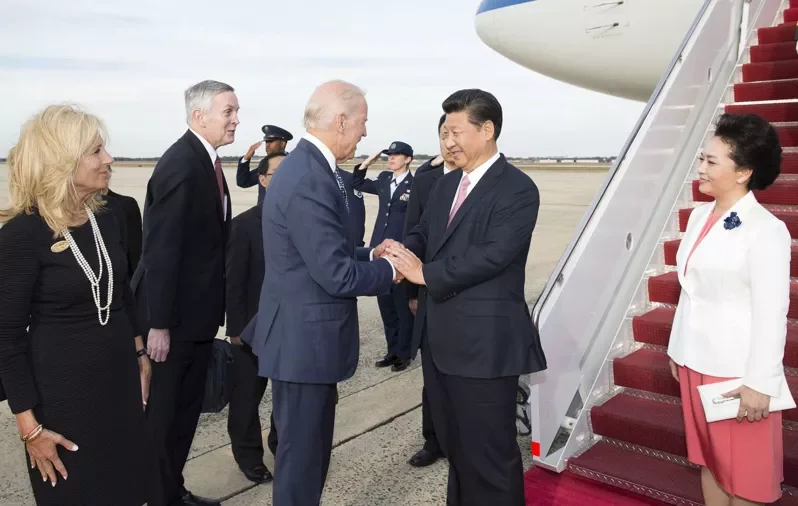
大陸國家主席習近平9月17日在上海合作組織(SCO)成員國元首理事會第二十一次會議上講話時提到,解決國際上的事情,不能從所謂「實力地位」出發,推行霸權、霸道、霸凌。
有分析指出,這是習近平首次在公開場合針對美國近來屢屢提及「實力地位」的表態,也是間接回應並否定美國總統拜登從「實力地位」出發和中國對話的策略。
在此之前,中共中央政治局委員、中央外事工作委員會辦公室主任楊潔篪以及國務委員兼外長王毅也多次否定拜登政府這一對華路線。3月19日,在美國阿拉斯加舉辦的中美高層戰略對話首日,楊潔篪在開場白就對美國國務卿布林肯和國安顧問沙利文在內的美方官員強硬表示,美國沒有資格在中國面前說從實力地位出發和中國談話。
從阿拉斯加高層戰略對話,到美國總統氣候特使柯瑞的天津會談,「實力地位」和「規則」是美國對大陸對話的基本元素。
但大陸學者指出白宮「實力地位」之說,實際上是美國霸權思維的一種外在表現,拒絕和中國平起平坐地看待和解決問題,並以多項圍堵措施施壓北京,包括最近與英國、澳洲共組的新軍事聯盟。
習近平9月17日還暗批美國:「我們要堅定制度自信,絕不接受教師爺般頤指氣使的說教」。他說,要支持各自平穩推進國內選舉等重要政治議程,絕不允許外部勢力以任何藉口干涉地區國家內政,要把本國發展進步的前途命運牢牢掌握在自己手中。
習近平還強調國際多邊主義。要踐行真正的多邊主義,反對打著所謂「規則」、「旗號」破壞國際秩序、製造對抗和分裂的行徑。要恪守互利共贏的合作觀,拆除割裂貿易、投資、技術的高牆壁壘,營造包容普惠的發展前景。
習近平的這些說法都在否定拜登政府「實力地位」和「規則」之說,而且還間接批評拜登政府延續的對華貿易戰、關稅戰和科技戰,以及其當前所推行的價值觀外交路線。
美媒文章:阿富汗布局失败、中俄崛起,“美利坚帝国”已衰落
环球网
9/09/2021
9月6日,《纽约时报》发表专栏作家罗斯·杜塔(Ross Douthat)的文章,他在文中表示,美国在伊拉克的困局和阿富汗的失败,以及俄罗斯的复仇主义和日益增长的中国力量,都削弱了“美利坚帝国”的发展,美国在“9·11”事件后谋求真正统治全球的幻想已经破灭。
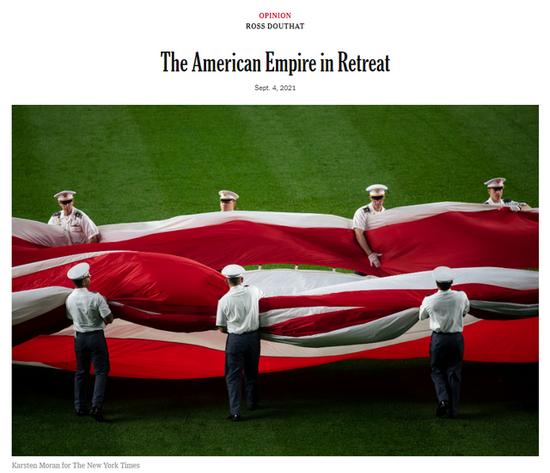
杜塔认为,世界上存在“三个美利坚帝国,而不是一个”。他解释称:“首先是中央帝国,即美国大陆以及周边太平洋和加勒比地区的属地;然后是外展帝国,由美国人在二战后占领和重建并置于我们的军事保护伞下的地区组成:基本上是西欧和环太平洋地区;最后,还有美国的世界帝国,在精神上,它存在于美国的商业和文化力量所及之处,在现实中,它存在于美国的附庸国和军事设施的组合中。”
杜塔宣称,“在某种程度上,第三个帝国是我们(美国)最了不起的成就”,但它面积太大,因此很难整合,也很难施加直接的控制。
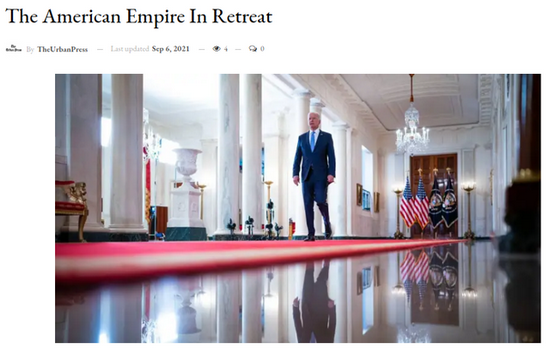
杜塔写道,“帝国时代最明显的美国失败”从1960年代的东南亚开始,然后是9·11之后的中东和中亚。他认为,这些失败“都是源于我们的傲慢想法,我们认为能把世界帝国作为外展帝国的一个简单的延伸,普遍使用北约那样的协定,并将二战后日本和德国的模式应用于越南、伊拉克或阿富汗。”
杜塔特别指出:“在我们最近将潜在竞争对手美国化的努力中,我们经历了类似的失败,虽然没有那么多流血事件,但战略后果更为严重。”他表示,美国曾在1990年代设想把自己与俄罗斯的关系发展成为类似与德国或日本的那种关系,而俄罗斯出现了“普京主义”;美国在过去20年里对中国施加影响,而中国坚持独立发展,成为了“一个真正的对手”。
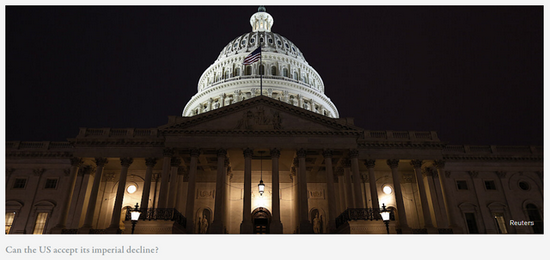
杜塔在文中称,虽然美利坚“世界帝国”的失败不会动摇美利坚“中央帝国”,但会带来一定影响。虽然美国不会被塔利班推翻,但在美利坚“外展帝国”,在西欧和东亚,美国给人留下的虚弱形象会加速事态发展,真正威胁到“美国体系”。而在美利坚“中央帝国”,加速衰落的感觉将渗透到国内的所有争论中,扩大已经存在的意识形态分歧,鼓励分裂和导致迫在眉睫的内战。
作者最后写道,读者可能认为不如干脆摆脱掉什么“美利坚帝国”,但是让美国变回一个普通国家,“很难不经历一次痛苦的坠落”。
Ross Douthat: The American empire in retreat
By ROSS DOUTHAT
9/09/2021
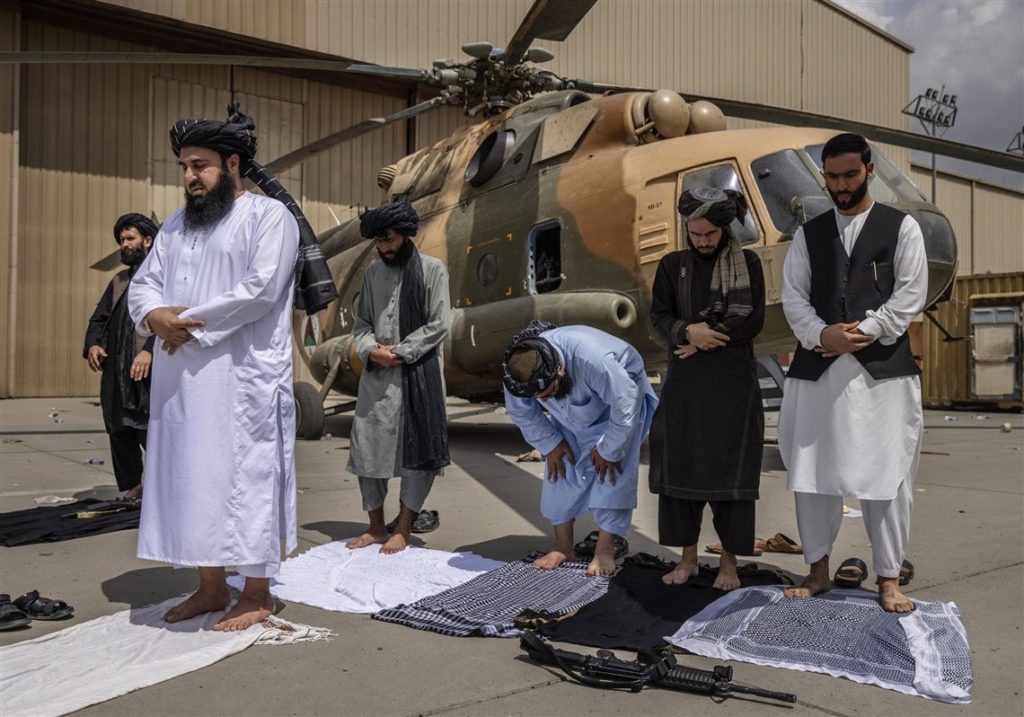
In one of the more arresting videos that circulated after the fall of Kabul, a journalist follows a collection of Taliban fighters into a hangar containing abandoned, disabled U.S. helicopters. Except that the fighters don’t look like our idea of the Taliban: In their gear and guns and helmets (presumably pilfered), they look exactly like the American soldiers their long insurgency defeated.
As someone swiftly pointed out on Twitter, the hangar scene had a strong end-of-the-Roman Empire vibe, with the Taliban fighters standing for the Visigoths or Vandals who adopted bits and pieces of Roman culture even as they overthrew the empire. For a moment, it offered a glimpse of what a world after the American imperium might look like: Not the disappearance of all our pomps and works, any more than Roman culture suddenly disappeared in 476 A.D., but a world of people confusedly playacting American-ness in the ruins of our major exports, the military base and the shopping mall.
But the glimpse provided in the video isn’t necessarily a foretaste of true imperial collapse. In other ways, our failure in Afghanistan more closely resembles Roman failures that took place far from Rome itself — the defeats that Roman generals suffered in the Mesopotamian deserts or the German forests, when the empire’s reach outstripped its grasp.
Or at least that’s how I suspect it will be seen in the cold light of hindsight, when some future Edward Gibbon sets out to tell the story of the American imperium in full.
That cold-eyed view, taken from somewhere centuries hence, might describe three American empires, not just one. First there is the inner empire, the continental USA with its Pacific and Caribbean satellites.
Then there is the outer empire, consisting of the regions that Americans occupied and rebuilt after World War II and placed under our military umbrella: basically, Western Europe and the Pacific Rim.
Finally, there is the American world empire, which exists spiritually wherever our commercial and cultural power reaches, and more practically in our patchwork of client states and military installations. In a way, this third empire is our most remarkable achievement. But its vastness inevitably resists a fuller integration, a more direct kind of American control.
Seen from this perspective, the clearest American defeats of our imperial era, first in Southeast Asia in the 1960s and then in the Middle East and Central Asia after 9/11, have followed from the hubristic idea that we could make the world empire a simple extension of the outer empire, making NATO-style arrangements universal and applying the model of post-World War II Japan and Germany to South Vietnam or Iraq or the Hindu Kush.
We have experienced similar failures, with less bloodshed but more significant strategic consequences, in our recent efforts to Americanize potential rivals.
Our disastrous development efforts in Russia in the 1990s led to a Putinist reaction, not the German- or Japanese-style relationship we had imagined. The unwise “Chimerican” special relationship of the past two decades seems to have only smoothed China’s path to becoming a true rival, not a junior partner in a peaceful world order.
Both kinds of failures and their consequences — Russian revanchism and growing Chinese power combined with quagmire in Iraq and defeat in Afghanistan — have meaningfully weakened the American world empire, and extinguished our post-9/11 fantasy of truly dominating the globe.
But so long as we have the other two empires to fall back on, from our cold-eyed Gibbonian perspective the situation still looks more like a scenario where Rome lost frontier wars to Parthia and Germanic tribes simultaneously — a bad but recoverable situation — than like outright imperial collapse.
That said, defeats on distant frontiers can also have consequences closer to the imperial core. The American imperium can’t be toppled by the Taliban. But in our outer empire, in Western Europe and East Asia, perceived U.S. weakness could accelerate developments that genuinely do threaten the American system as it has existed since 1945 — from German-Russian entente to Japanese rearmament to a Chinese invasion of Taiwan.
Inevitably those developments would affect the inner empire, too, where a sense of accelerating imperial decline would bleed into all our domestic arguments, widen our already yawning ideological divides, encourage the feeling of crackup and looming civil war.
Which is why you can think, as I do, that it’s a good thing that we finally ended our futile engagement in Afghanistan and still fear some of the possible consequences of the weakness and incompetence exposed in that retreat.
And applied to the American empire as a whole, this fear points to a hard truth: You might think that our country would be better off without an imperium entirely, but there are very few paths back from empire, back to just being an ordinary nation, that don’t involve a truly wrenching fall.
Ross Douthat is a columnist for The New York Times.




